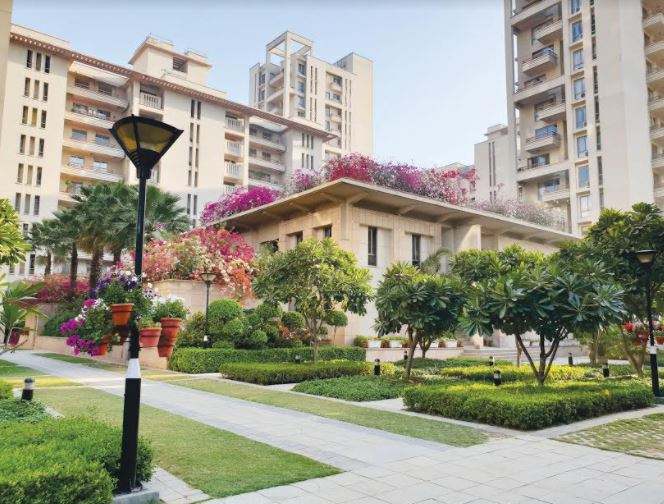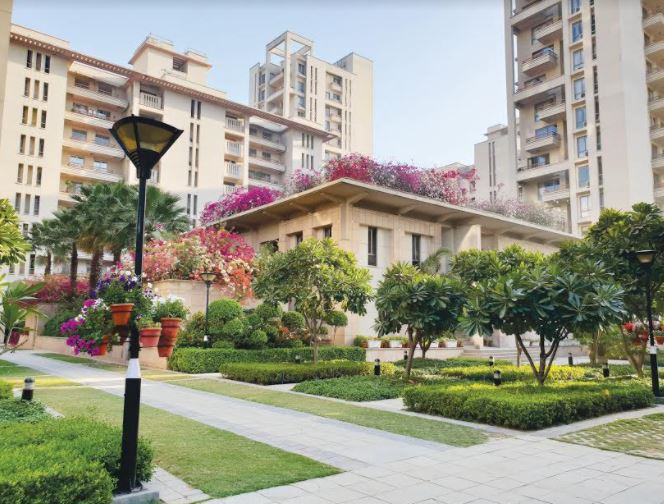Developers are unanimous that real estate will bounce back in 2021 owing to prospects of economic stability and a conducive policy landscape. According to them, the Unlock phases, the series of government initiatives and the recently-concluded festive season have set the momentum for growth that is expected to continue into 2021 as well. The COVID-19 pandemic has reaffirmed the significance of spacious homes and real estate as a stable investment during an unprecedented time.
 |
AlphaCorp GurgaonOne, Sector 22, Gurugram, Haryana
“The demand for exclusive residential properties will likely continue well into 2021. Also, with home-loan rates being all-time low, the demand and inquiries have seen a steep jump, and we expect this to continue even in the next financial year. We see a number of NRIs either moving back to India or looking at investment options here. This will boost the demand for homes starting from mid-segment housing to luxury and super luxury homes,” Karan Kumar, CMO, DLF Ltd., said.
Pankaj Bansal, Director, M3M opined, “We expect that 2021 will see consolidation of the industry in favour of organized developers, leveraging technology to enhance customer experiences and customer-centricity as the key objective of developers. In the commercial segment, the high-street concept has gained momentum as compared to malls and this will continue in the coming year. The residential segment is already on the path to recovery owing to the pent-up demand and the need to invest in well planned, spacious homes amidst extended work from home.”
Amarjit Bakshi, Chairman & Managing Director, Central Park, echoed a similar sentiment, “Housing sales saw a sharp recovery in the second and third quarter in all top cities compared to the preceding quarter. With this, it is further expected that the sector will exhibit healthy growth in the future. There is an emerging trend of settling into townships due to the availability of a plethora of amenities available to the residents within the vicinity. Integrated urban areas with spaces that are multi-purpose for use will gain more momentum.”
Mr. Anuj Kumar Garg, Vice President Customer Engagement & Distribution, Viridian RED said, “The prospect of Indian commercial real estate seems resilient in 2021. In the last few months, a couple of transactions led by global firms in the Noida region have strengthened the market sentiments. Noida has emerged as a premium business destination and the announcement of mega infrastructural developments like Film city & Noida international Airport further bodes well for its realty market. Lowest interest rates, NRIs return to India, aggressive policies of UP government, thrust to the manufacturing sectors have boosted the demand of the office space market in the region leading to a South Korean mobile brand & global IT giants company relocating their offices to Noida.”
The third quarter of 2020 has witnessed traction in commercial real estate as well. A JLL report points out that net absorption increased by 63% to 5.4 mn sq. ft in Q3 2020. In the retail segment, malls have re-opened, albeit, with safety measures, precautions and footfalls are gradually increasing towards pre-COVID level. Moreover, commercial real estate continues to be an attractive investment proposition owing to lucrative return potential.
Mr. Ravish Kapoor, Managing Director, Elan Group, said, “The Unlock phase has witnessed an uptick in retail sales & leasing activities in commercial real estate. We foresee the commercial retail segment to lead the road to growth in 2021. We have received a positive response from customers in the past few months owing to the revival of consumer sentiments in real estate.”
Besides concerns towards health, hygiene and wellness measures, developers believe that COVID-19 has sparked reverse migration to Tier 2 and Tier 3 cities since work from home doesn’t come with geographical constraints. These emerging cities enable customers to own spacious homes, with a relatively lower cost per unit area.
“The COVID-19 pandemic has led to a trend of reverse migration to Tier-II cities. The demand for the realty sector in these regions is expected to see a positive fillip in the coming year as it possesses advantages in terms of low-cost and relatively larger unit area of real estate properties. The sector has also seen prolonged stress in 2020, one of which is the tale of stalled projects. The ultimate change, however, could only be brought by the consolidated efforts of the industry players. For a better future for the industry, this trend has already begun and is expected to rule the year 2021,” said Ashish Sarin, CEO, AlphaCorp.
![]() This content comes to you under an arrangement with NewsVoir. Source
This content comes to you under an arrangement with NewsVoir. Source

